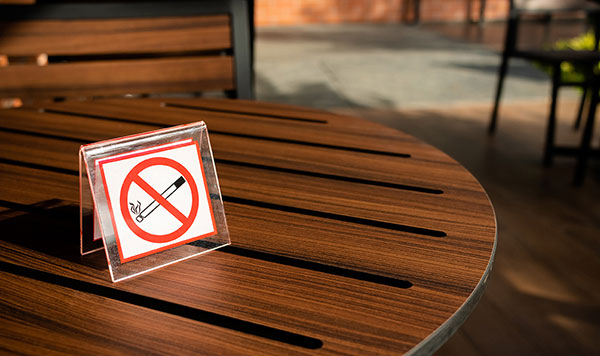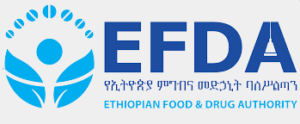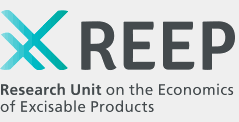
Tobacco Industry Interference in Ethiopia
The main forms of Tobacco Industry interference in Ethiopia are the opposition, delay, and the disruption of processes for the adoption and implementation of FCTC-compliant tobacco control policies.
The National Tobacco Enterprise (NTE)/Japan Tobacco International (JTI) monopoly uses unvalidated illicit trade data to oppose increased tobacco taxation in Ethiopia.
Despite a strong tobacco-control legal framework, efforts by the government and civil society, further legal and institutional measures need to be taken to address tobacco industry interference in Ethiopia.
In Ethiopia, approximately 9,900 tobacco-related deaths occur yearly.
Tobacco-control efforts have been opposed by the Tobacco Industry before and after the ratification of the World Health Organization Framework Convention on Tobacco Control (WHO FCTC) by the Ethiopian government. This emphasizes the need for increased collaboration by tobacco-control stakeholders in monitoring, exposing, and countering tobacco industry interference.
This page details tobacco industry interference in Ethiopia and demystifies common tobacco industry myths.The National Tobacco Enterprise (NTE) was a government-owned monopoly in Ethiopia until 2016 when it was jointly acquired by Japan Tobacco International (JTI), with a 71% shareholding, and Sheba Investment PLC (a Yemen-based company), with a 29% shareholding. The NTE/JTI manages 5 large-scale tobacco farms (Robi, Billate, Hawassa, Wolayta, and East Shoa) and buys tobacco leaf from 10,326 outgrowers. Tobacco is processed at a factory based in Addis Ababa. The acquisition contract included a 10-year monopoly in the manufacture, export, import, and sale of tobacco under the trade name NTE/JTI. The transitional Board of Directors in 2016 was chaired by a former minister of finance.
Tobacco Industry Market Share
In 2020, the NTE/JTI sold 8.5 billion cigarettes, 98% produced locally and 2% imported.
In the same year, tobacco imports stopped with the introduction of the locally manufactured Winston brand. Since 2020, only cigarettes produced locally by the NTE/JTI or licensed by the industry are legal.Locally produced brands, such as Nyala and Nyala premium, are widely available at an affordable price. Conversely, internationally known brands produced in Ethiopia are mostly consumed by upper-middle-income and high-income Ethiopians.
There has been an increase in the volumes of cigarettes sold in Ethiopia. 8.5 billion cigarettes were sold in 2020 compared to 7.5 billion cigarettes in 2016.
Source: Global Data Set 2020
The Global Tobacco Industry Interference Index measures the progress of governments in implementing Article 5.3 of the WHO FCTC and its guidelines which deals with the protection of public health policies with respect to tobacco control from commercial and other vested interests of the tobacco industry.
The index is based on data collected, through a questionnaire, from civil society actors, with responses based on publicly available sources.
This Index is based on publicly available information on TI interference indicators (Participation in Policy Development, TI Corporate Social Responsibility, Benefits to the Industry, Unnecessary Interaction, Measures for Transparency, Conflict of Interest) in countries and their respective governments’ responses to this interference. The lower the score out of 100, the less the industry interference.Tobacco Industry Interference (T.I.I.) Index
The lower the score, the lower the level of interference
- T.I.I Score|
- 0 - 9
- 10 - 19
- 20 - 29
- 30 - 39
- 40 - 49
- 50 - 59
- 60 - 69
- 70 - 79
- 80 - 89
- 90 - 100
- No Data
Source: globaltobaccoindex.org
In 2023, the Global Tobacco Industry Interference ranked Ethiopia as 6th out of 90 countries with a score of 37 out of 100.
In 2021 Ethiopia Ranked 21st out of 80 with a score of 49. In 2020 Ethiopia scored 42 out of 100 and was ranked 10th out of 80. This means that industry interference increased in the country briefly. However, in the year 2023, there is a noticeable improvement.The tobacco industry uses various tactics to oppose, delay, and disrupt the adoption and implementation of tobacco control policies.
Corporate Social Responsibility Activities
Tobacco Industry Corporate Social Responsibility (CSR) Activities
Proclamation 1112/2019 and Article 5.3 Guidelines bar governments from endorsing, accepting, or participating in CSR activities sponsored by tobacco companies, since this is marketing and intended to secure legitimacy with the public and government officials.
On July 29, 2019, the National Tobacco Enterprise (NTE)/JTI) participated in the “go green/the green legacy” environmental scheme national campaign officially launched by the Ethiopian Prime Minister and planted 2,000 trees in support of the National Green Development Program. This is to detract public attention from the tobacco industry’s role in deforestation and buy legitimacy and favor with the government.
Conducting Junk Science
Conducting Junk Science
In 2019, the NTE/JTI commissioned a study on illicit trade in Ethiopia. The study was conducted by the Ethiopian Economic Association. The study found that 61% of tobacco sold in Ethiopia was from illicit sources.
The NTE/JTI used this study to lobby against the proposed tax increase. An independent study estimated 45% of all tobacco trade in Ethiopia as illicit in 2018.Receiving Benefits
Receiving Benefits
Proclamation 1112/2019 and Article 5.3 Guidelines bar governments from offering preferential treatment or benefits to the tobacco industry.
The Ministry of Finance accepted the estimates of illicit trade as a rationale for lowering excise tax rates on tobacco products. Further, in 2019, the Ministry of Revenue gave an award to the NTE/JTI for being a high taxpayer; this award was used by the tobacco industry to promote and improve its public image.
In 2020, the State Minister of the Ministry of Finance referred to the TI estimates on illicit trade (above 40%) as a rationale for not imposing the FCTC recommended levels of excise tax. It will be very difficult to impose more tax now as it can lead to the local tobacco factory going out of the market.
Source, Global Tobacco Index
Unnecessary Interactions with Government
Unnecessary Interactions between the Tobacco Industry and Government Officials
Proclamation 1112/2019 limits interactions between public health officials, institutions, and the tobacco industry to only those strictly necessary for the effective regulation of the tobacco industry or tobacco products.
Engagements between the TI and the Ministry of Finance/Customs Commission remain unclear since the deliberations are not available to the public.
The NTE/JTI also offered technical support to the Customs Commission on countering the illicit tobacco trade, which constitutes unnecessary interaction between TI and the government.In 2019, the Ethiopian government (Customs Commission) and Japan Tobacco International (JTI) negotiated a two-year Memorandum of Understanding (MoU) that creates a ‘framework of cooperation between the parties’ to address illicit tobacco trade. The MoU establishes collaboration between the tobacco industry and the Ethiopian Customs Commission, including training and information sharing.
The Ethiopia Customs Commission later learned that the signing of the MoU was not appropriate and did not renew the MoU after its expiry in 2021.
Source: Official of the Customs Commission
Conflicts of Interest
Conflicts of Interest
Proclamation 1112/2019 and Article 5.3 Guidelines require the elimination of conflicts of interest between government officers and the tobacco industry. In Ethiopia, conflicts of interest have arisen from the involvement of senior government officers in the management of the tobacco industry.
The nomination of a former Minister of Finance as the chairman of the Inaugural Board of Directors for NTE/JTI was an attempt to influence the policy-making processes of Ethiopia.
As a result, despite the Proclamation allowing for regular inflation-linked adjustments to the excise taxes, this has not been done since the ratification of the excise tax in 2020, despite a high inflation rate.In most countries, the tobacco industry has lost credibility among policymakers and civil society due to the history of deceit in its representation of the adverse effects of smoking on the population. They therefore use independent and credible third parties to make pro-smoking
and anti-tobacco-control arguments.Lobby groups are influential organizations/persons that act on behalf of the tobacco industry, contacting regulators and policymakers to influence regulation and legislation.
Below are the front/lobby groups representing the tobacco industry in Ethiopia.Tobacco Industry Front Groups in Ethiopia
Ref
Ref Ref
Myth: A rise in taxes leads to an increase in illicit trade.
Fact: Weak border controls as opposed to tax increases on tobacco products lead to illicit trade.

Myth: Bans on smoking in hospitality venues affect business.
Fact: The adoption of a tobacco-free hospitality industry does not affect the profitability of the tobacco industry.
The Guidelines for the Implementation of Article 5.3 of the WHO FCTC provide recommendations for the comprehensive and effective protection of tobacco control policies from tobacco industry interference. This section provides information on what steps the tobacco-control stakeholders have taken to counter industry interference and what further actions are needed to prevent it in the future.
Ethiopia’s Success in Countering Industry Interference
1.
Preventing NTE/JTI from receiving benefits
Advocacy groups engaged the Ministry of Revenue to delist the NTE/JTI from receiving awards as a large taxpayer for 2020 and 2021.
2.
Non-renewal of the MoU between Government and NTE/ JTI.
Tobacco-control stakeholders engaged the government over the extension of the MoU between the Ethiopia Customs Commission and the NTE/JTI on illicit tobacco trade. The advocacy resulted in the non-renewal of the MoU in 2021.
3.
Rejection of NTE/JTI infrastructure support to the government.
In 2020, due to advocacy from tobacco-control stakeholders, the Ministry of Health rejected an offer from the tobacco industry to support the government in the renovation of the Cancer Treatment Center.
The request was denied on the grounds this was in conflict with the Article 5.3 guidelines.4.
Rejection of donations from NTE/JTI
At the onset of the COVID-19 pandemic in 2020, the NTE/JTI donated free hand-wash materials to communities in Addis Ababa. This was however in contravention of Article 5.3 guidelines and was highlighted to the Ministry of Health by advocacy groups. As a result, the donation was halted the same year.
Recommendations for Dealing with Tobacco Industry Interference
Source: Ethiopia Tobacco Industry Interference Index, 2020





